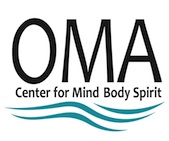YOU ARE NOT ALONE--May is Mental Health Awareness Month
6:30 pm - 8:30 pm Eastern Time
Zoom Webinar
$5 Donation Requested
May is Mental Health Awareness Month
Started over 50 years ago, its purpose is to raise awareness about mental health conditions and the importance of mental wellness for all. We all need to raise the awareness of trauma and the impact it has on physical, emotional, and mental well-being. A traumatic event, which threatens our lives, our safety or our personal integrity, can affect each of us. We are only just beginning to find new ways of healing from the wounds and shame that often prevents survivors from seeking health.
The causes of trauma—sexual abuse, violence in families and neighborhoods, and the impact of war, for example are a Public Health concern. We need to continue to recognize the devastating impact of trauma and successful approaches to treatment that are available. Many trauma survivors have formed self-help groups to heal together and a movement for trauma-informed care has emerged to ensure that trauma is recognized and treated, and that survivors are not re-victimized when they seek care.
Unresolved trauma can manifest in many ways, including anxiety disorders, panic attacks, intrusive memories (flashbacks), obsessive-compulsive behaviors, Post-Traumatic Stress Disorder, addictions, self-injury and a variety of physical symptoms. Trauma also increases behaviors such as overeating, smoking, drinking and risky sexual behaviors. Unaddressed trauma can significantly increase the risk of mental health and substance use disorders, suicide, chronic physical ailments, as well as premature death. Asian American youth are the only racial group with suicide as the major cause of death. We must not fail in understanding the impact of traumatic experiences on ourselves, our mental health/wellness and our lives.
Join us in our monthly panel discussion to honor May’s Mental Health Awareness Month from the lens of healing from Trauma. Learn various techniques our panelists have used to heal and move forward and embrace the reclaiming of self, their relationships and their lives.
It is critical that our efforts strengthen, so we can begin to heal these invisible wounds. They are crucial in promoting the healthy development of children and adults and healthy behaviors in families, schools and communities, thereby reducing the likelihood of trauma.
In this webinar, panelists will share their insights on recovering from trauma through life stories and the experiences that have supported them on their path to healing. Panelists will also share holistic practices that may help those who have suffered similar traumatic experiences.
This panel conversation is part of OMA's Trauma Program, designed for the sharing of stories around our diverse life experiences and exploring the connections among us all. Join us as we explore Healing from Trauma and Mental Health Awareness on May 23.
Panelists: Marilyn Carpenter, Deb Carter, Angela Failor, Carlynn Graves, Callie Gropp, Elizabeth Homlish, Gail Hunter, Paula Ilochi, Treble NLS, Mai Nguyen, Leza Vivio. See past panelists.
Moderator: Callie Group
YOU ARE NOT ALONE, an OMA Webinar Series featuring a panel conversation on trauma and recovery—We are all connected on this journey of healing, of both self and humanity, from our own individual traumas as well as our collective traumas.
Let’s all drop the pretense that we are either normal, or abnormal…
We are all in the same support group: ordinary people who must deal with the struggles that come with being human. We all carry this heavy weight—a trauma, whether from childhood abuse, childhood adverse experiences (ACE's),domestic violence, gaslighting, bullying, emotional/ verbal abuse and manipulation, medical trauma, and injury. We all at the same time struggle to meet our basic human needs for connection, community, acceptance, and validation among ones who share our culture and language, or not, for authenticity–the capacity to feel what we feel and to be in touch with our bodies and to express what we feel when we need to.
Fundamentally, that is the ultimate trauma, the disconnection from ourselves…
In this webinar series we believe that in the presence of compassion, healing is possible. Only with compassion can we bear our pain. In the Tibetan Book of Living and Dying the author says, whatever you do don’t shut off your pain. Accept your pain and remain vulnerable. –Mai Nguyen, Panelist


Can’t wait to see what Emily has to teach us